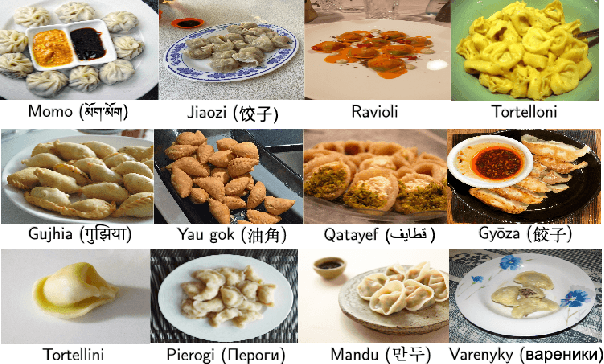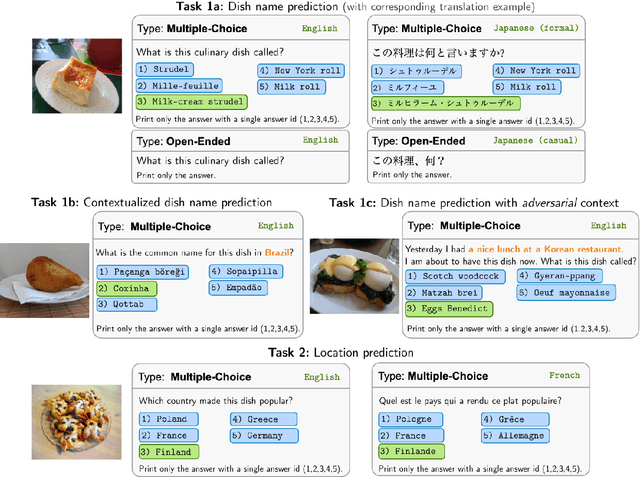Patrick Amadeus Irawan
Can Large Language Models Understand, Reason About, and Generate Code-Switched Text?
Jan 12, 2026Abstract:Code-switching is a pervasive phenomenon in multilingual communication, yet the robustness of large language models (LLMs) in mixed-language settings remains insufficiently understood. In this work, we present a comprehensive evaluation of LLM capabilities in understanding, reasoning over, and generating code-switched text. We introduce CodeMixQA a novel benchmark with high-quality human annotations, comprising 16 diverse parallel code-switched language-pair variants that span multiple geographic regions and code-switching patterns, and include both original scripts and their transliterated forms. Using this benchmark, we analyze the reasoning behavior of LLMs on code-switched question-answering tasks, shedding light on how models process and reason over mixed-language inputs. We further conduct a systematic evaluation of LLM-generated synthetic code-switched text, focusing on both naturalness and semantic fidelity, and uncover key limitations in current generation capabilities. Our findings reveal persistent challenges in both reasoning and generation under code-switching conditions and provide actionable insights for building more robust multilingual LLMs. We release the dataset and code as open source.
Entropy2Vec: Crosslingual Language Modeling Entropy as End-to-End Learnable Language Representations
Sep 05, 2025Abstract:We introduce Entropy2Vec, a novel framework for deriving cross-lingual language representations by leveraging the entropy of monolingual language models. Unlike traditional typological inventories that suffer from feature sparsity and static snapshots, Entropy2Vec uses the inherent uncertainty in language models to capture typological relationships between languages. By training a language model on a single language, we hypothesize that the entropy of its predictions reflects its structural similarity to other languages: Low entropy indicates high similarity, while high entropy suggests greater divergence. This approach yields dense, non-sparse language embeddings that are adaptable to different timeframes and free from missing values. Empirical evaluations demonstrate that Entropy2Vec embeddings align with established typological categories and achieved competitive performance in downstream multilingual NLP tasks, such as those addressed by the LinguAlchemy framework.
WorldCuisines: A Massive-Scale Benchmark for Multilingual and Multicultural Visual Question Answering on Global Cuisines
Oct 16, 2024



Abstract:Vision Language Models (VLMs) often struggle with culture-specific knowledge, particularly in languages other than English and in underrepresented cultural contexts. To evaluate their understanding of such knowledge, we introduce WorldCuisines, a massive-scale benchmark for multilingual and multicultural, visually grounded language understanding. This benchmark includes a visual question answering (VQA) dataset with text-image pairs across 30 languages and dialects, spanning 9 language families and featuring over 1 million data points, making it the largest multicultural VQA benchmark to date. It includes tasks for identifying dish names and their origins. We provide evaluation datasets in two sizes (12k and 60k instances) alongside a training dataset (1 million instances). Our findings show that while VLMs perform better with correct location context, they struggle with adversarial contexts and predicting specific regional cuisines and languages. To support future research, we release a knowledge base with annotated food entries and images along with the VQA data.
ProxyLM: Predicting Language Model Performance on Multilingual Tasks via Proxy Models
Jun 14, 2024



Abstract:Performance prediction is a method to estimate the performance of Language Models (LMs) on various Natural Language Processing (NLP) tasks, mitigating computational costs associated with model capacity and data for fine-tuning. Our paper introduces ProxyLM, a scalable framework for predicting LM performance using proxy models in multilingual tasks. These proxy models act as surrogates, approximating the performance of the LM of interest. By leveraging proxy models, ProxyLM significantly reduces computational overhead on task evaluations, achieving up to a 37.08x speedup compared to traditional methods, even with our smallest proxy models. Additionally, our methodology showcases adaptability to previously unseen languages in pre-trained LMs, outperforming the state-of-the-art performance by 1.89x as measured by root-mean-square error (RMSE). This framework streamlines model selection, enabling efficient deployment and iterative LM enhancements without extensive computational resources.
 Add to Chrome
Add to Chrome Add to Firefox
Add to Firefox Add to Edge
Add to Edge